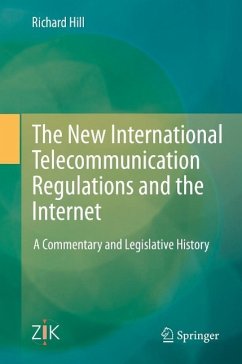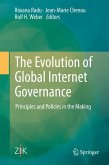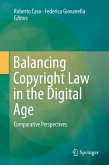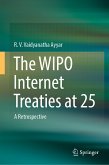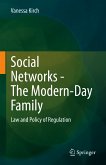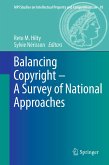The book covers in some detail the events leading to the non-signature of the treaty by a significant number of states, outlines possible consequences of that split between states, and offers possible ways forward. The book includes a detailed article-by-article analysis of the new ITRs, explaining their implications, and concludes with recommendations for national authorities. It concludes with an analysis of events from the point of view of dispute resolution theory, offering suggestions for how to avoid divisive outcomes in the future.¿
Dieser Download kann aus rechtlichen Gründen nur mit Rechnungsadresse in A, B, BG, CY, CZ, D, DK, EW, E, FIN, F, GR, HR, H, IRL, I, LT, L, LR, M, NL, PL, P, R, S, SLO, SK ausgeliefert werden.
"This is an authoritative expert account of a moment of high significance for vital issues with respect to international networks." -- Professor Dan Schiller, University of Illinois
"This is an excellent and timely work." -- Professor Ian Walden, Queen Mary, University of London
"Interested persons, businesses and governments can draw their policies from the assessments of a telecommunications insider as presented in this book.
The manifold arguments enlightening the interpretation of the provisions of the ITRs might become an invaluable guidance for those who apply the ITRs in the future." -- Professor Dr. Rolf H. Weber, University of Zurich
"The New International Telecommunication Regulations and the Internet offers researchers a rare opportunity to better understand how international negotiations surrounding contentious technological questions take place. ... the monograph highlights the role of the world's oldest intergovernmental organization in managing the exchange of information between states. ... This detailed account of the ITU's history and role in navigating the controversial minefield of coordinating international information flows is a welcome addition to the body of empirical work on international communication and, specifically, Internet governance." (Shawn Powers, International Journal of Communication, Vol. 8, 2014)
"This is an excellent book, and quite rich and comprehensive. The topic is important and the book will surely be of interest to regulators, diplomats, policy experts, and all those who participated in WCIT. The author is uniquely qualified to write an analysis of the new ITRs and an account of the Conference. This book will be a good reference for the next Plenipotentiary Conference to be held in 2014 which is going to discuss follow-up to WCIT-12." Naser al-Rashedi, United Arab Emirates.
"This is an authoritative expert account of a moment of high significance for vital issues with respect to international networks." Professor Dan Schiller, University of Illinois
"This is an excellent and timely work." Professor Ian Walden, Queen Mary, University of London
"Interested persons, businesses and governments can draw their policies from the assessments of a telecommunications insider as presented in this book. The manifold arguments enlightening the interpretation of the provisions of the ITRs might become an invaluable guidance for those who apply the ITRs in the future." Professor Dr. Rolf H. Weber, University of Zurich
"... The greatest value of the work lies in its systematic approach to describingthe process and the modifications of the text that took place. This legalistic approach succeeds in refuting or moderating many of the criticisms (or outright scare talk) that were made by Internet partisans during the process. On the whole it provides a more accurate view of what the new ITRs actually are and would actually do than most people have seen. But for better or worse, the tone of rancor that characterized the WCIT is still reflected in parts of this book..." Milton Mueller, igp Internet Governance Project, March 13, 2014

